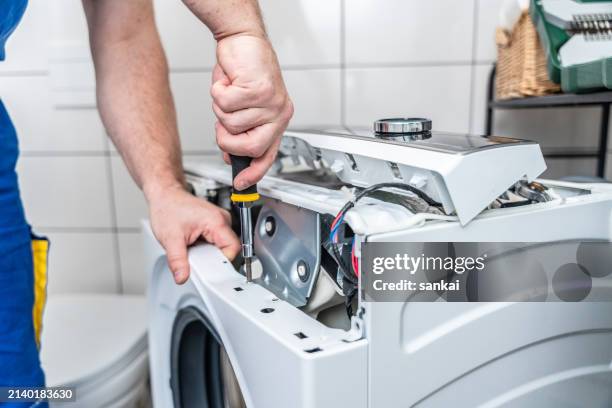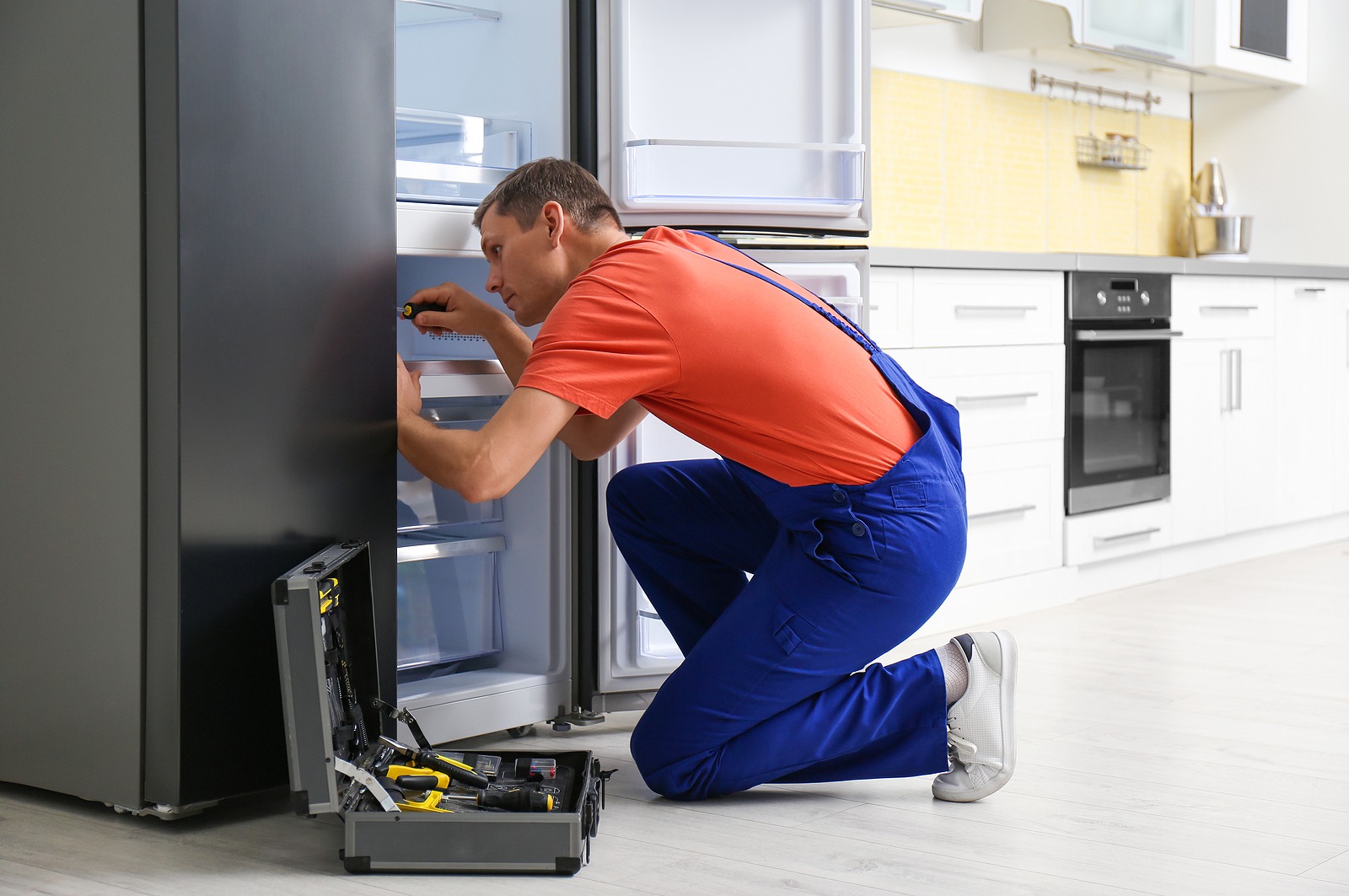The Ultimate Guide to Comprehending Appliance Repair Work at Home
When your fridge quits cooling or your oven declines to warmth, it can really feel overwhelming. Recognizing device repair work at home can save you money and time. You'll learn to identify symptoms, utilize essential tools, and comply with a methodical troubleshooting process. Before you begin, there are vital safety preventative measures you need to take right into account. What are one of the most common problems, and how can you repair them? Let's check out the basics.
Typical Home Appliance Problems and Their Signs and symptoms
When your home appliances begin breaking down, it's vital to acknowledge the signs early. Disregarding them can cause bigger problems and pricey repair services. As an example, if your fridge isn't cooling properly, you could see cozy spots or condensation creating. This can show a falling short compressor or an obstructed vent.Your dish washer might show troubles with unclean recipes or uncommon noises throughout cycles. If you hear grinding or clanking, it's time to investigate.A washing device that will not rotate or drain pipes can leave you with soggy washing, suggesting a blocked drainpipe or a malfunctioning pump.Lastly, if your oven's temperature level appears off or it takes permanently to pre-heat, you may be dealing with a malfunctioning thermostat. By staying sharp to these signs, you can resolve problems before they rise into major repairs.
Crucial Tools for Device Repair Work
When you're taking on home appliance repairs in your home, having the right devices is vital. Fundamental hand tools like screwdrivers and pliers will help you take apart and fix different home appliances, while electric testing devices ensure you're working safely with electrical wiring. Let's look at what you require to get going on your repair journey.
Basic Hand Devices
Having the right tools is crucial for effective appliance repair service in your home. Beginning with a trustworthy screwdriver collection, including both flathead and Phillips kinds, as screws prevail in device assembly. Pliers are additionally crucial; they assist with gripping, turning, and reducing cables or little elements. A set of needle-nose pliers can reach difficult situations conveniently. You'll require an excellent flexible wrench for tightening up or loosening up nuts and screws. An utility blade comes in handy for puncturing packaging or insulation. Don't neglect a strong workbench or surface to safely organize your tools and components. With these fundamental hand devices, you'll be well-prepared to deal with most device repairs that come your method.
Electrical Screening Devices
Along with fundamental hand devices, electric screening devices play a crucial function in appliance repair service. These tools help you identify electric problems and warranty devices function securely. A multimeter is essential; it measures voltage, current, and resistance, allowing you to pinpoint issues rapidly. A non-contact voltage tester is another must-have, letting you discover online cables without making straight call, boosting your security. Clamp meters are great for determining existing flow in wires without detaching them, conserving you effort and time. Furthermore, circuit testers can quickly check if electrical outlets are working appropriately. By making use of these gadgets, you'll improve your troubleshooting procedure and improve your repair service skills, making home appliance maintenance a lot much easier.
Step-by-Step Overview to Diagnosing Device Issues
When your device acts up, it can be irritating, but diagnosing the issue does not need to be frustrating. You'll discover to identify typical issues and apply efficient fixing methods. Allow's stroll with the steps to obtain your appliance back in working order.
Typical Home Appliance Problems

Repairing Strategies Discussed

Fixing Significant Cooking Area Home Appliances: A Closer Look
Have you ever questioned how to tackle usual problems with your cooking area appliances? Fixing major kitchen area appliances like fridges, stoves, and dishwashing machines can be less complicated than you assume. Start by recognizing the trouble-- whether it's a refrigerator not cooling or an oven that won't heat up. Frequently, an easy reset or examining the power resource can resolve the issue.For fridges, clean the condenser coils and inspect the door seals. If your oven's not heating, check the heating component and thermostat. Dish washers might simply need a tidy filter or a reset to get them back in action. Constantly disconnect the appliance prior to diving right into repair services to ensure your safety.Don' t fail to remember to speak with the individual guidebook for specific fixing tips associated to your version. With a bit of persistence and the right devices, you can confidently deal with home appliance repairs and conserve money while doing so!

Repairing Washing Appliances: Tips and Techniques
When your laundry appliances start breaking down, it can feel overwhelming, however troubleshooting them does not have to be a hassle. Begin by examining the power supply. Verify the device is plugged in and the outlet is operating. Next, inspect the door or cover button; a damaged button can protect against the equipment from operating.For washers, if it's not spinning, look for unbalanced tons. Rearranging the clothing might resolve the problem. If your clothes dryer isn't home heating, tidy the dust filter and inspect the air vent for blockages.Listen for uncommon sounds; they can suggest a trouble. If your appliance is leaking, check the pipes for splits or loosened links. Paper any mistake codes presented on digital screens, as they can guide you in identifying the problem. Ultimately, consult the user manual for specific fixing suggestions associated with your model.
Safety And Security Preventative Measures to Take Throughout Services
Prior to you begin any kind of device repair services, it's vital to prioritize safety and security to avoid crashes or injuries. Disconnect the appliance or transform off the circuit breaker to assure no power reaches it while you function. Use insulated devices to minimize the risk of electric shock. Use safety goggles and handwear covers to secure yourself from sharp sides or debris (Dependable Refrigeration & Appliance Repair Service Washing Machine Repair).Make particular your work area is tidy and well-lit, so you can see what you're doing. Maintain children and pets away from the area to stay clear of interruptions and possible threats. If you're taking care of gas home appliances, be added mindful; check for leaks before proceeding.Take your time, and don't hurry with repair work. If you really feel unsure about any kind of action, it's better to stop briefly and study than to presume. Complying with these preventative measures will help produce a more secure environment for your DIY appliance fixing task
When to Call an Expert for Help
Exactly how do you know if it's time to call in an expert for device repair services? If you have actually attempted standard troubleshooting without success, it's a clear indicator. If your device still will not begin or reveals uncommon noises after resetting it, do not wait to seek expert help.When you notice leakages, smoke, or shedding scents, focus on safety and call a pro quickly. These issues can lead to even more considerable damage or position risks to your home.Also, if your appliance is under service warranty, calling a specialist is frequently the most effective course. They can assure that repairs won't void your warranty, saving you cash in the long run.Finally, if you're unsure or uneasy with complicated repair work, it's wise to leave it to the specialists. Keep in mind, dealing with difficult problems without the best experience can result in expensive errors. Trust a specialist when unsure!
Regularly Asked Questions
How Can I Prevent Appliance Issues in the Future?
To prevent appliance troubles in the future, you get more info must perform normal maintenance, check for wear and tear, tidy filters, and avoid overloading. Staying proactive will certainly help prolong their life-span and keep them running efficiently.
What Are the Most Usual DIY Device Repair Mistakes?
You may overlook security preventative measures, skip fixing actions, or use inaccurate devices when attempting DIY appliance repair services. Rushing the procedure or overlooking maker guidelines can result in more significant concerns and costly blunders. Keep patient and notified!
Exactly how Do I Know if a Component Requirements Replacement?
You can tell if a part needs replacement by looking for uncommon sounds, leakages, or irregular efficiency. If the home appliance battles to run appropriately or reveals noticeable damages, it's likely time for a replacement.
Can I Use Generic Parts for Home Appliance Repairs?
Yes, you can utilize generic parts for home appliance repairs, however identify they work - Dryer repair Oro Valley Dependable Refrigeration & Appliance Repair Service. Generic components may save you money, yet they might impact performance or long life, so weigh your options meticulously prior to making a choice
What Service Warranties Cover Home Appliance Services?
Most home appliance service warranties cover fixings for producing flaws, yet they frequently exclude damages from misuse. Check your service warranty terms very carefully, as some might call for using licensed service technicians and original components for coverage to stay valid.